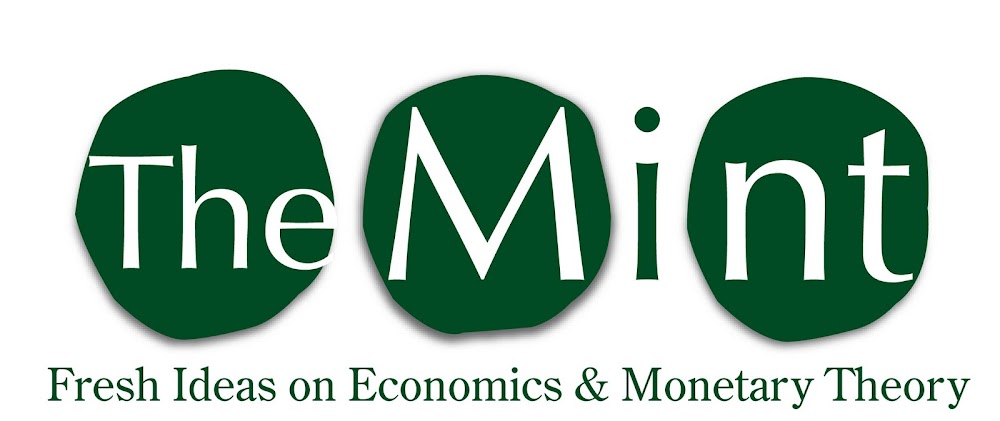We are excited for the upcoming Thanksgiving Holiday here at The Mint. Thanksgiving is unique to America and I know of no other day that is simply set aside to give thanks, appreciation, for what one has. One cannot give thanks and complain at the same time and since we hear so much of the latter, the former at least gets lip service one day a year.
At The Mint we are thankful that the Irish took the bailout. We are thankful for the bailout because it means that the central thesis in the bond markets is intact. That thesis is: Any nation, state, government, bank, mortgage company, or group of special interests large enough to make the international news for its upcoming debt default will be bailed out by (insert name of larger, big brother type entity here). In the Irish's case, the EU showed up at their neighbor's front door to force them to refinance. "Brother please! Save yourself some money and take on more debt!" This insanity is excused by large phrases like "avoiding systemic risk" or in colloquial terms being "too big to fail."
So the obvious question is, when will bad debts ever be written off? Or more directly, will the huge imbalances that have led to the incurring and subsequent inability to pay large scale bad debts ever go away? Bond Market participants have been given the green light for three years now to operate under the assumption that they will not lose money on bonds. Does this have a familiar ring to it? Perhaps because it is similar to the mantras that one should invest in stocks for the long haul or that they don't make real estate anymore as reasons for investors to pile in to an asset class. So after investors have been burned by crashes in both stocks and real estate, you would think that they would be wary of bonds.
Not so, because with the current operation of the bond market, the Federal Reserve, Fannie Mae, (insert name of big brother entity here) will make good on them even if X bank fails. There is no risk, right? Our position here at The Mint is that, if the bond is repayable in any widely used currency, dollars, yen, or Euros, that those currencies will be worth significantly less when the bonds come due. This is what is known as "stealth default." You give the government enough to buy a house today and when they give it back to you all you can buy is a week's worth of groceries.
This stealth default allows the maker of the bond to save face and default is unpopular so this is where we are headed. There is no other course on the horizon.
 |
| The World Badly Needs a Jubilee Year! |
People will make bad decisions, investments, etc. God knows that society needs and acceptable way to deal with these bad decisions because if they were not dealt with, huge imbalances in production and consumption would take place. So much so that peaceful society could not continue to exist if the imbalances grew beyond a certain point. God chose 7 years for debts to be forgiven and 50 years for things to return to their original state in Israel if the debtor so chose to return to his "starting place." With these simple rules in place, people could only enslave themselves for 7 years. This brought balance to society.
So will bad debts ever go away? We pray and know that one day they will. It is the only way that productive society can arise from the scorched earth economy that the current extend and pretend game of bailouts is maintaining.
So the answer is yes, the next Jubilee year is coming in 2017. In the mean time, it could be an interesting ride!
Stay Fresh!
P.S. If you enjoy or at least tolerate The Mint please share it with your family, friends, and colleagues!
Key Indicators for Monday, November 22, 2010
Copper Price per Lb: $3.78
Oil Price per Barrel: $81.51
10 Yr US Treasury Bond: 2.83%
FED Target Rate : 0.20%
Key Indicators for Monday, November 22, 2010
Copper Price per Lb: $3.78
Oil Price per Barrel: $81.51
10 Yr US Treasury Bond: 2.83%
FED Target Rate : 0.20%
MINT Perceived Target Rate*: 5.25%
Unemployment Rate: 9.6%
Inflation Rate (CPI): 0.1%
Dow Jones Industrial Average: 11,179
M1 Monetary Base: $1,763,300,000,000
M2 Monetary Base: $8,706,500,000,000
Unemployment Rate: 9.6%
Inflation Rate (CPI): 0.1%
Dow Jones Industrial Average: 11,179
M1 Monetary Base: $1,763,300,000,000
M2 Monetary Base: $8,706,500,000,000
*See FED Perceived Economic Effect Rate Chart at bottom of blog. This rate is the FED Target rate with a 39 month lag, representing the time it takes for the FED Target rate changes to affect the real economy. This is a 39 months head start that the FED member banks have on the rest of us on using the new money that is created.

No comments:
Post a Comment